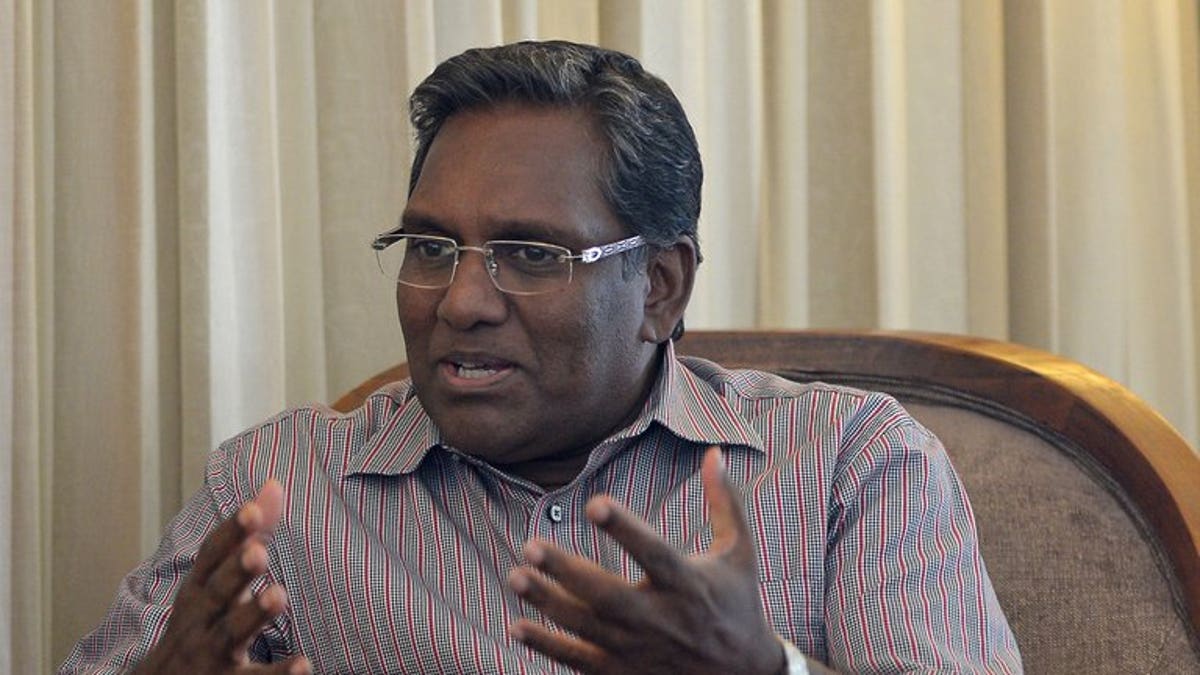
Maldivian President Mohamed Waheed speaks during an interview with AFP in Colombo on July 7, 2013. He pledged to work with the main Islamic party ahead of upcoming elections, and rejected opposition fears it would lead to increased radicalisation in the luxury tourist destination. (AFP)
COLOMBO (AFP) – Maldivian President Mohamed Waheed pledged Sunday to work with the main Islamic party ahead of upcoming elections, and rejected opposition fears it would lead to increased radicalisation in the luxury tourist destination.
Waheed is standing for re-election at the September 7 poll as part of a coalition of four-parties, including the Adhaalath Party, which once called for a ban on men and women dancing in public.
He said excluding Adhaalath from mainstream politics risked marginalising the party, which would have a "negative long-term effect" on the tropical resort nation.
"We believe we can work with them (Adhaalath), we believe we must work them, because not working with them would be to marginalise them...," the president told AFP in an interview at the end of a two-day visit to the Sri Lankan capital.
"Rejecting them would have a more negative long term effect. Inclusion is better than exclusion. It is better to take them on board. Better to work with them," he said.
Waheed has pledged that the nation will remain a bastion of tolerance despite pressure from Adhaalath to adopt a stricter form of sharia or Islamic law.
The party also opposes serving alcohol in holiday resorts that attract thousands of tourists a year and is the mainstay of the nation's economy.
Waheed came to power after the controversial resignation in February 2012 of Mohamed Nasheed, the country's first democratically elected president in 2008, after weeks of street protests capped by a police mutiny.
Waheed has been under international pressure to allow an "inclusive election" amid several court cases that could disqualify Nasheed as a candidate.
The president vowed there would be a "totally free and fair and inclusive election" on September 7. He said he was also inviting international observers to monitor the polls.
Waheed described most Adhaalath members as moderate, while some had "extreme views".
"I don't worry too much about this (radicalisation). There will always be a few extremists everywhere, even in Europe and the America."
He said there had been no attacks blamed on Islamic extremists recently, but the opposition accused them of destroying the entire collection of 12th century Buddhist artefacts at the Male museum during political unrest last year.
The Maldives, a string of Indian Ocean coral islands populated by 330,000 Sunni Muslims, has been troubled by political unrest in recent years.
